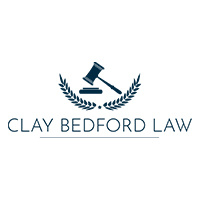Dardanelle White Collar Crime Lawyer, California
Sponsored Law Firm
-
 x
x

Click For More Info:
-
The Law Offices of Richard L. Cooper, P.A.
848 Brickell Avenue Suite 800 Miami, FL 33131» view mapDWI/DUI, Drug Trafficking, Felony Nationally Ranked Top 40 Under 40
With Richard L. Cooper you can expect a trusted confidant who will work diligently to fully understand your case and determine a road map to help you regain control of your life.
800-756-2781
Not enough matches for Dardanelle White Collar Crime lawyer.
Below are all Dardanelle Criminal lawyers.
Clay Bedford
✓ VERIFIEDCriminal, DUI-DWI, Misdemeanor, Felony, Traffic
I am an attorney licensed to practice law in the State of California. My practice is limited to criminal defense and juvenile cases. The criminal... (more)
David L. Axelrod
Divorce & Family Law, Criminal, Civil & Human Rights, Accident & Injury
Status: In Good Standing
Patrick Greenwell
Construction, Criminal, Corporate, Contract
Status: In Good Standing Licensed: 38 Years

 Richard L. Cooper Miami, FL
Richard L. Cooper Miami, FL AboutMiami Attorney at Law
AboutMiami Attorney at Law ServicesCriminal Defense
ServicesCriminal Defense

